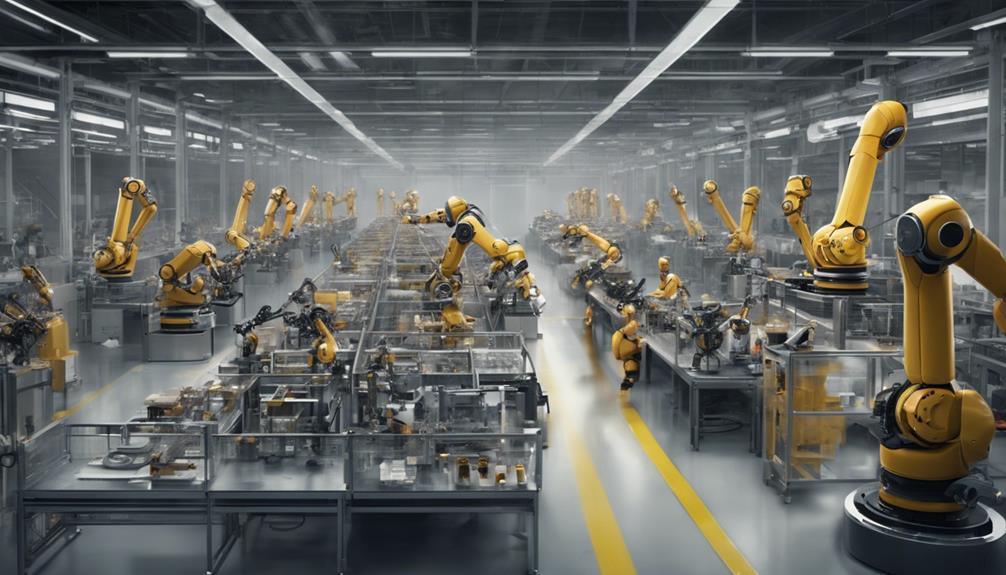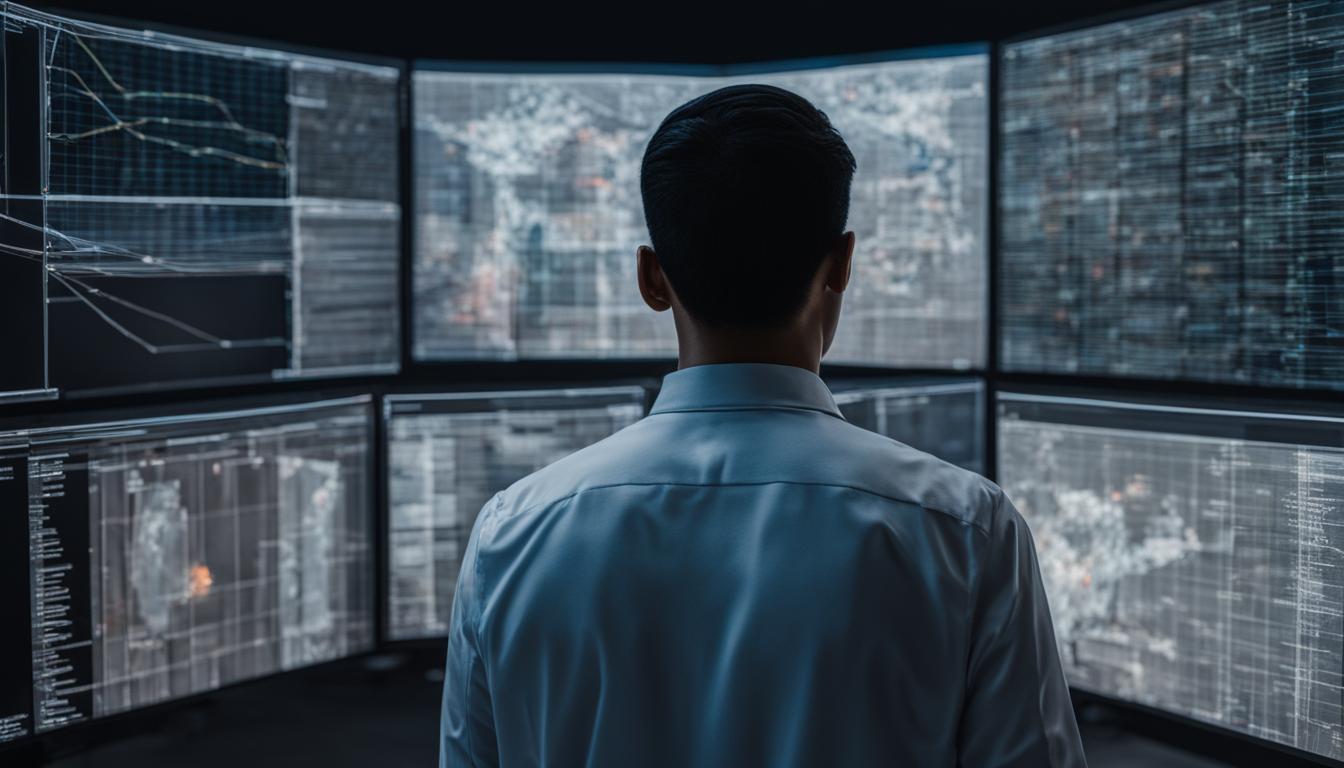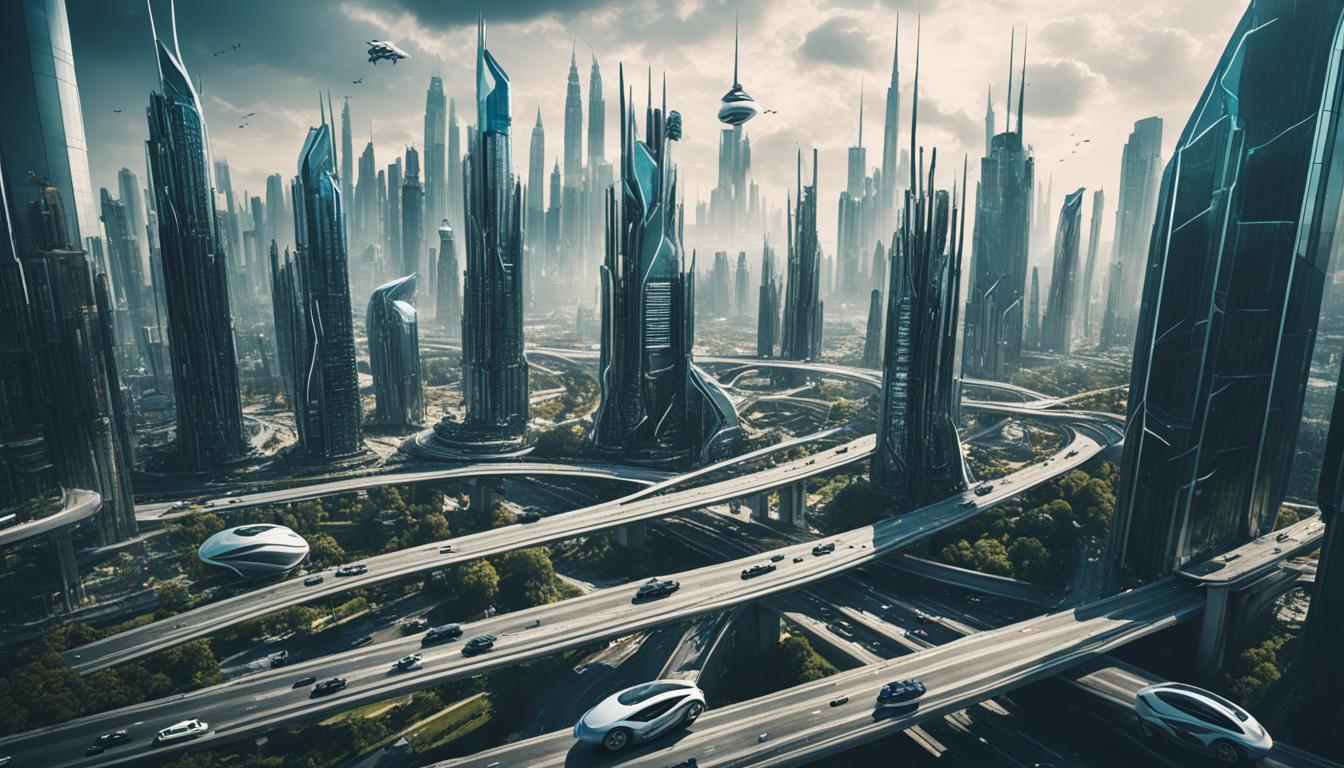The integration of artificial intelligence in various industries is reshaping the traditional workforce, raising concerns about the future of many traditional job roles. As AI technology continues to advance, its ability to automate tasks typically performed by humans is becoming more sophisticated, leading to a shift in the types of skills that employers are looking for.
This transformation poses both challenges and opportunities for professionals across different sectors, prompting a critical examination of the factors driving this transition and the strategies individuals can employ to navigate this evolving job market successfully.
Key Takeaways
- Automation of routine tasks and data analysis drives AI's ability to replace traditional roles.
- Increasing job losses in legal and administrative fields due to AI integration.
- AI tools like ChatGPT are replacing roles like copywriting, impacting workforce dynamics.
- Organizations and policymakers must take proactive measures to address job displacement and skill shifts.
Impact of AI on Job Displacement
The proliferation of artificial intelligence (AI) technologies has precipitated significant job displacement, as evidenced by the staggering loss of 4,000 jobs in May alone and projections indicating the potential replacement of 300 million jobs globally. This impact is particularly concerning for fields like legal and administrative work, where women are often employed, as AI technologies have the potential to automate many tasks traditionally performed by humans. Specific roles, such as copywriters, are already being replaced by AI-powered tools like ChatGPT, showcasing the swift evolution of the job market due to technological advancements.
The skills required in the workforce are shifting rapidly, necessitating adaptability and continuous learning to remain relevant in an AI-dominated job market. As AI continues to advance, individuals must proactively develop skills that complement rather than compete with AI technologies to ensure their employability. Understanding the implications of AI on job displacement is crucial for both employees and employers to navigate the changing landscape of work effectively.
Technological Advancements Driving Workforce Changes

Driven by rapid technological advancements, the transformation of the workforce is fundamentally reshaping traditional job roles. Automation driven by AI is replacing traditional roles, emphasizing efficiency through data analysis and optimized job functions. The demand for AI skills is escalating as businesses recognize the potential of AI to streamline operations and foster innovation. AI's ability to handle complex tasks and enhance productivity is revolutionizing various industries, leading to a significant shift in the required skill sets within the workforce.
| Technological Advancements | Driving Workforce Changes |
|---|---|
| Automation of routine tasks | Increased efficiency |
| AI's data analysis capabilities | Cost-effective job functions |
| AI's speed, accuracy, scalability | Replacement of traditional roles |
| Rising demand for AI skills | Shift in skill requirements |
The integration of AI is not merely a trend but a fundamental change driving workforce evolution. As AI continues to advance, the skills and roles demanded within the workforce will continue to adapt to meet the changing landscape of industry needs.
Implications of AI Integration in Industries
Evidently, the pervasive integration of AI in industries is significantly impacting the workforce, leading to notable job displacements and transformations. This phenomenon has various implications for the future world of work:
- Job Losses: The rapid AI integration in industries has resulted in significant job losses, with 4,000 workers being displaced in May alone. This trend is expected to continue as AI technology advances further.
- Traditional Roles at Risk: Traditional roles in industries such as legal and administrative fields, where women are prominently represented, are particularly vulnerable to being replaced by AI. This raises concerns about the potential gender disparities in the workforce due to AI integration.
- Rise of AI Tools: AI-powered tools like ChatGPT are increasingly being utilized to automate tasks traditionally performed by humans, such as copywriting. This shift towards AI tools signifies a fundamental transformation in how work is conducted across various industries.
These implications underscore the urgent need for organizations and policymakers to proactively address the challenges posed by AI integration in the workforce to ensure a smooth transition for workers into the future job market.
Challenges Faced by Traditional Job Roles

In the evolving landscape of the workforce, traditional job roles are encountering formidable challenges as AI-driven automation and efficiency enhancements redefine the expectations and requirements for professional roles. The impact of AI on traditional job roles is significant, with millions of jobs at risk of displacement due to the increasing demand for AI skills and the efficiency improvements brought by automation. Companies are turning to AI technologies to drive innovation and stay competitive, leading to a shift away from traditional roles towards more AI-focused positions. Traditional job roles are facing challenges in adapting to this changing environment, where AI jobs offer opportunities for growth and innovation that were previously unavailable. The table below summarizes the challenges faced by traditional job roles in the wake of AI integration:
| Challenges Faced by Traditional Job Roles |
|---|
| Displacement of millions of jobs |
| Increasing demand for AI skills |
| Automation leading to job role changes |
| Struggle to match AI-driven efficiency |
Future Workforce Trends Amid AI Expansion
The rapid expansion of AI technologies is reshaping the landscape of the workforce, driving significant shifts in job requirements and skill sets. As the future of work evolves amid AI expansion, several trends are emerging:
- Upskilling and Education: The demand for digital skills, particularly in AI, is increasing. Workers need to upskill to remain competitive in the job market, emphasizing the importance of continuous education and training.
- Emphasis on STEM Jobs: Science, Technology, Engineering, and Mathematics (STEM) roles are becoming more prominent as AI integration expands. Jobs in these fields are crucial for driving technological advancements and innovation in the workforce.
- Impact on Jobs Held by Women: With the automation of certain tasks, there may be a shift in the types of jobs traditionally held by women. Efforts to ensure gender diversity in AI-related fields and provide equal opportunities for women in the workforce are gaining importance.
Frequently Asked Questions
Why AI Is Replacing Workers?
AI is replacing workers due to its ability to automate tasks, leading to increased efficiency and productivity. The adoption of AI technologies is driven by the desire for improved accuracy and reduced errors in various industries.
How Is AI Replacing the Role of Humans?
AI is reshaping job landscapes by automating tasks once performed by humans, optimizing processes, and increasing productivity. Through advanced algorithms and machine learning, AI streamlines functions in various sectors, revolutionizing traditional roles in the workforce.
How AI Is Changing the Workplace?
AI is revolutionizing the workplace by optimizing processes, enhancing decision-making, and enabling advanced analytics. It facilitates automation, boosts productivity, and transforms job roles. Businesses are leveraging AI to drive innovation, competitiveness, and operational excellence.
How Will AI Affect Job Roles?
AI will revolutionize job roles by automating tasks, enhancing efficiency, and demanding upskilling. Industries will see a shift towards roles requiring creativity, problem-solving, and emotional intelligence. Adaptation to AI advancements is crucial for workforce sustainability.
Conclusion
In the ever-evolving landscape of the workforce, the rise of AI jobs replacing traditional roles is evident. As technological advancements continue to drive change in industries, the implications of AI integration are reshaping the way we work.
Challenges faced by traditional job roles are prompting a shift towards upskilling and adaptation. The future of the workforce lies in navigating these trends amid AI expansion, creating a new rhythm and flow in the job market.
Ava combines her extensive experience in the press industry with a profound understanding of artificial intelligence to deliver news stories that are not only timely but also deeply informed by the technological undercurrents shaping our world. Her keen eye for the societal impacts of AI innovations enables Press Report to provide nuanced coverage of technology-related developments, highlighting their broader implications for readers.










